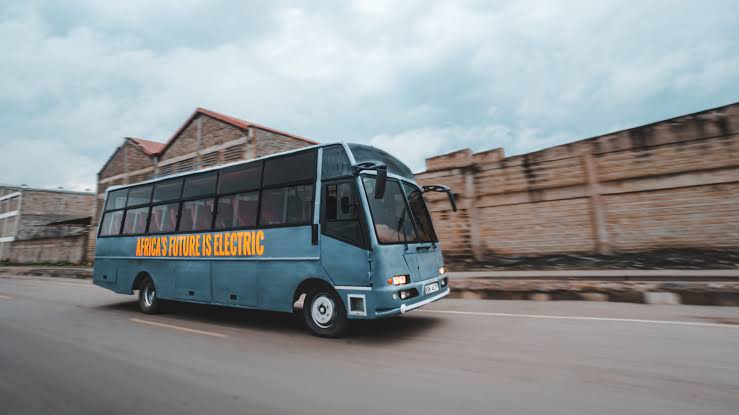Opibus, a Swedish-Kenyan group, has introduced its first African designed and manufactured electric bus in Kenya; with the aim of cleaning-up pollution in public transportation. Opibus, is also Kenya’s first company to make electric motorcycles. The company plans to launch the bus commercially in a few months and bring it to markets across Africa by 2023.
According to the Opibus website; This is a step towards realizing the Opibus goal of electrifying Africa’s public transport system, deploying products tailored for the local use case. The bus is designed and developed in-house with local engineering talent, while at the same time utilizing local manufacturing partners.
The key to the technology is the Opibus proprietary electric vehicle platform, which is modular and can be the foundation for several types of vehicles. This enables the creation of a bus that is suitable for the African use; in its reliability, durability and price point. This also means local and global contract manufactures can be used to create a globally competitive product, with a rapid scale-up. 
Opibus Electric Bus is of superior performance
This bus will be significantly lower cost than importing fully built electric buses. However, it also has superior performance compared to its diesel counterpart. With the installation of a powerful motor, the bus has maximum torque which improves performance; while enabling the driver to accelerate more responsively. Additionally, since the electric bus does not have a combustion engine or manual gearboxes, there are no oil/filters/gaskets that need to be changed. This translates to an 80% reduction in maintenance expenses, compared to a diesel bus. Taking into account the electricity charges which are also significantly lower than the ever-increasing diesel price; the total operating expenses are lowered by 50% and will revolutionize the public transport sector in Africa.
According to Dennis Wakaba, the Project coordinator – Public Transport; “This first electric bus is set to be launched commercially mid this year. Following this, the platform will be tested at scale in commercial deployment of 10 buses during the second half of 2022. In doing so, we ensure that we gather valuable feedback to continue the development of the product for an optimized market fit. It feels great to be the first movers in this very exciting space”
The deployment of the buses will initially be in peri-urban areas around Nairobi Metropolitan; paired with a business model that enables operators to save from day one. Along with the bus deployment, several charging points will be installed from Opibus’ already existing range of products. These chargers will be a mix of AC (slow) and DC (fast) chargers. Using the fast charger, the electric bus will be fully charged within an hour enabling seamless operations.
